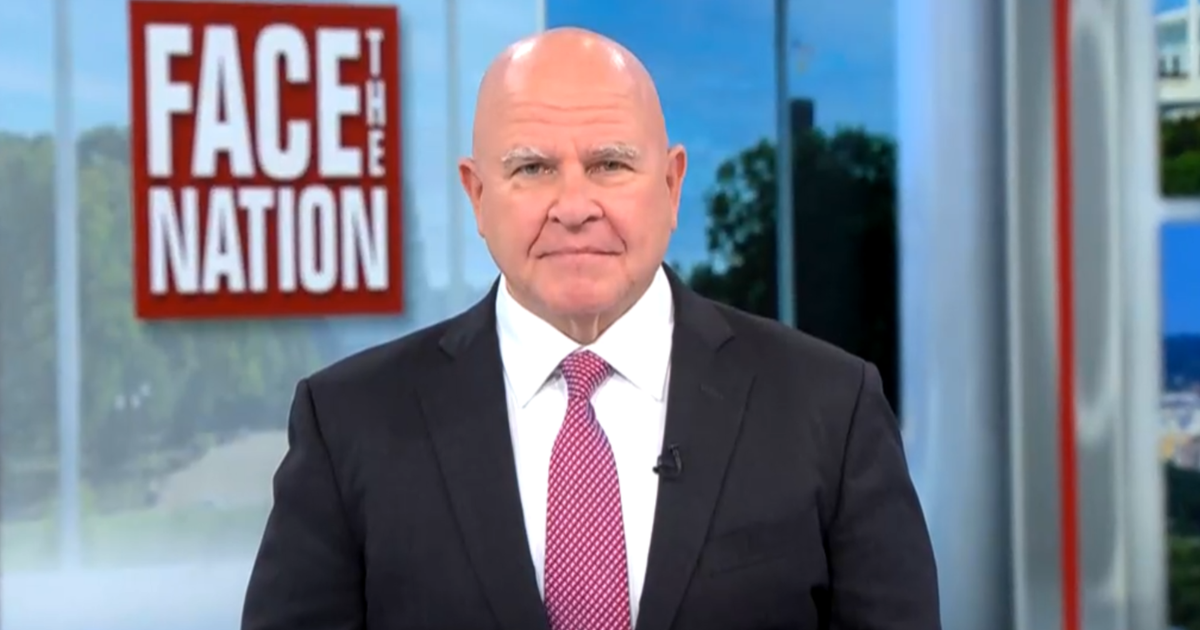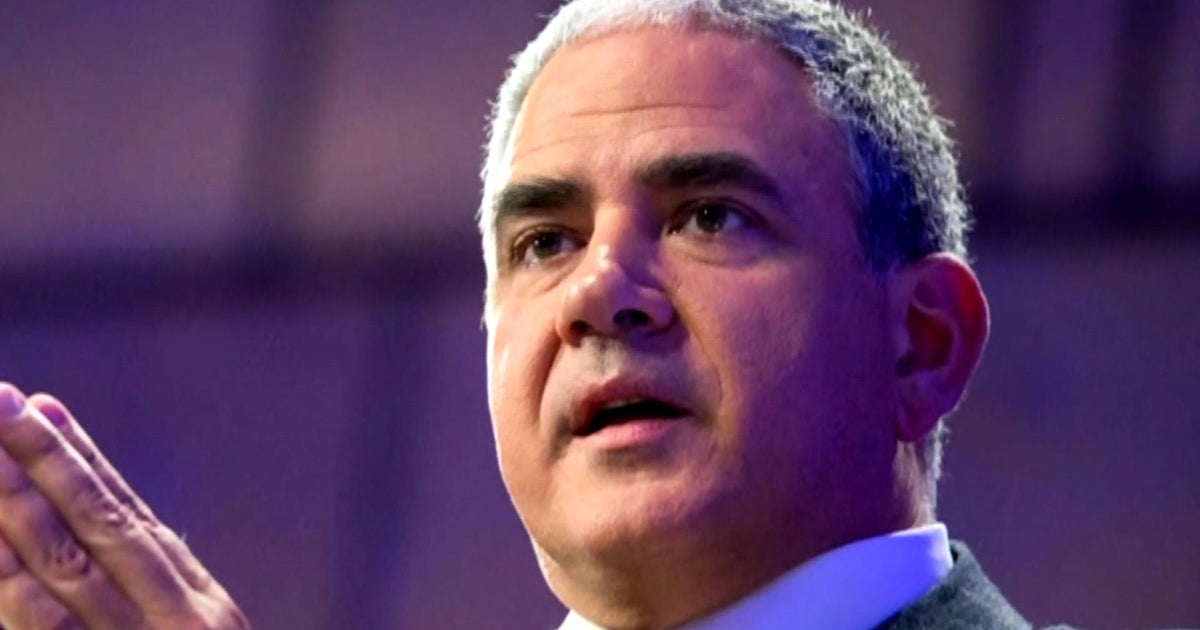CBS News
Nearly 1 in 4 adults dumped from Medicaid are now uninsured, survey finds

Nearly a quarter of adults disenrolled from Medicaid in the past year say they are now uninsured, according to a survey released Friday that details how tens of millions of Americans struggled to retain coverage in the government insurance program for low-income people after pandemic-era protections began expiring last spring.
The first national survey of adults whose Medicaid eligibility was reviewed during the unwinding found nearly half of people who lost their government coverage signed back up weeks or months later — suggesting they should never have been dropped in the first place.
While 23% reported being uninsured, an additional 28% found other coverage — through an employer, Medicare, the Affordable Care Act’s insurance marketplace, or health care for members of the military, the survey by KFF found.
“Twenty-three percent is a striking number especially when you think about the number of people who lost Medicaid coverage,” said Chima Ndumele, an associate professor of health policy at the Yale University School of Public Health.
Going without insurance even for a short period of time can lead people to delay seeking care and leave them at financial risk when they do.
Seven in 10 adults who were disenrolled during the unwinding process say they became uninsured at least temporarily when they lost their Medicaid coverage.
Adrienne Hamar, 49, of Plymouth Meeting, Pennsylvania, said she struggled to enroll in an Affordable Care Act marketplace plan this winter after the state informed her that she and her two children no longer qualified for Medicaid. They had been enrolled since 2020. She said phone lines were busy at the state’s marketplace and she couldn’t complete the process online.
Hamar, who works as a home health aide, and her children were uninsured in March. But since April 1, they’ve been enrolled in a marketplace plan that, with the help of government subsidies, costs $50 a month for the family.
“I was very relieved,” she said. Unsure of their insurance status, Hamar said, her 23-year-old daughter delayed getting a dental checkup.
Adrienne Hamar
Hamar’s struggles were common, the survey found.
Of adults enrolled in Medicaid before the unwinding, about 35% who tried to renew their coverage described the process as difficult, and about 48% said it was at least somewhat stressful.
About 56% of those disenrolled say they skipped or delayed care or prescriptions while attempting to renew their Medicaid coverage.
“People’s current insurance status is likely to be very much in flux, and we would expect at least some of the people who say they are currently uninsured to reenroll in Medicaid — many say they are still trying — or enroll in other coverage within a short period of time,” said Jennifer Tolbert, a co-author of the KFF report and the director of KFF’s State Health Reform and Data Program.
The survey didn’t include children, and the KFF researchers said their findings therefore couldn’t be extrapolated to determine how the Medicaid unwinding has affected the overall U.S. uninsured rate, which hit a record low of 7.7% in early 2023. Nearly half of enrollees in Medicaid and the related Children’s Health Insurance Program are children.
The unwinding, in which states are reassessing eligibility for Medicaid among millions of Americans who enrolled before or during the pandemic and dropping those who no longer qualify or did not complete the renewal process, won’t be completed until later this year. Enrollment in Medicaid and CHIP grew to a record of nearly 94.5 million in April of last year, three years after the federal government prohibited states from cutting people from their rolls during the covid-19 public health emergency.
Nationally, states have disenrolled about 20 million people from Medicaid in the past year, most of them for procedural reasons such as failure to submit required paperwork. That number is expected to grow, as states have a few more months to redetermine enrollees’ eligibility.
Among adults who had Medicaid prior to the start of the unwinding, 83% retained their coverage or reenrolled, while 8% found other insurance and 8% were uninsured. The share left uninsured was larger in states that have not expanded Medicaid under the ACA (17%) than in states that have (6%). Forty states have expanded Medicaid to cover everyone with an income under 138% of the federal poverty rate, or $31,200 for a family of four this year.
The KFF survey found that nearly 1 in 3 disenrolled adults discovered only when they sought health care — such as going to a doctor or a pharmacy — that they had been dropped from Medicaid.
Indira Navas of Miami found out that her 6-year-old son, Andres, had been disenrolled from Florida’s Medicaid program when she took him to a doctor appointment in March. She had scheduled Andres’ appointment months in advance and is frustrated that he remains uninsured and his therapy for anxiety and hyperactivity has been disrupted.
Navas said the state could not explain why her 12-year-old daughter, Camila, remained covered by Medicaid even though the children live in the same household with their parents.
Javier Ojeda
“It doesn’t make sense that they would cover one of my children and not the other,” she said.
Kate McEvoy, executive director of the National Association of Medicaid Directors, said the sheer volume of millions of people being redetermined for eligibility has overwhelmed some state call centers trying to support enrollees.
She said states have tried many ways to communicate with enrollees, including through public outreach campaigns, text, email, and apps. “Until the moment your coverage is at stake, it’s hard to penetrate people’s busy lives,” she said.
The KFF survey, of 1,227 adults who had Medicaid coverage in early 2023 prior to the start of the unwinding on April 1, 2023, was conducted between Feb. 15, 2024, and March 11, 2024. The margin of sampling error was plus or minus 4 percentage points.
KFF Health News correspondent Daniel Chang contributed to this article.
KFF Health News is a national newsroom that produces in-depth journalism about health issues and is one of the core operating programs at KFF — the independent source for health policy research, polling, and journalism.
CBS News
9/29: Sunday Morning – CBS News

Watch CBS News
Be the first to know
Get browser notifications for breaking news, live events, and exclusive reporting.
CBS News
Pope Francis denounces military attacks that go “beyond morality” when asked about Israel’s recent attacks

Pope Francis criticized military attacks that go “beyond morality” after he was asked about Israel’s recent escalation of attacks in Lebanon that targeted top Hezbollah commanders.
Francis made the comments while en route home from Belgium when reporters asked him to weigh in on Israel’s airstrike that killed Hezbollah’s longtime leader Hassan Nasrallah on Friday. The strike in Beirut targeted an area greater than a city block and reduced several buildings to rubble.
Hezbollah confirmed that the airstrike also killed Ali Karaki, one of the group’s senior commanders. At least seven top commanders in the Iran-backed militant group have been killed in recent days by Israel strikes.
Andrew Medichini / AP
Francis, who didn’t mention Israel by name and said he was speaking in general terms, said that “the defense must always be proportional to that attack.”
“When there is something disproportionate, there is a dominating tendency that goes beyond morality,” he said. “A country that does these things — and I’m talking about any country — in a superlative way, these are immoral actions.”
He said that even if war itself is immoral, there are rules that “indicate some morality.”
“But when you don’t do this … you see the bad blood of these things,” he said.
The death of Nasrallah has sent shockwaves throughout Lebanon and the Middle East, where he has been a dominant political and military figure for more than three decades.
President Biden said the Israeli strike was a “measure of justice” for victims of Hezbollah’s “reign of terror.”
Francis has tried to strike a balance in his comments on the Oct. 7 Hamas attack on Israel and the conflicts in Gaza and southern Lebanon that have ensued. He has called for an immediate cease-fire, for the release of hostages taken by Hamas and for humanitarian aid to get to Gaza.
Francis repeated that he calls the Catholic parish in Gaza every day to see how they are doing.
CBS News
Transcript: H.R. McMaster, former National Security Adviser, on “Face the Nation with Margaret Brennan,” Sept. 29, 2024

The following is a transcript of an interview with H.R. McMaster, CBS News contributor and former National Security Adviser, on “Face the Nation with Margaret Brennan” that aired on Sept. 29, 2024.
ROBERT COSTA: We’re joined now by retired Lieutenant General H.R. McMaster. He did serve as National Security Advisor in the Trump administration, but he has not endorsed either candidate in the presidential race this time around. He’s also a CBS News contributor and the author of a new book, “At War With Ourselves.” Good morning, General, thanks for being here.
LT. GENERAL H.R. MCMASTER: Robert, great to be with you.
ROBERT COSTA: You just heard from retired General McChrystal. He has made an endorsement. You have not. Why not?
LT. GENERAL H.R. MCMASTER: Well, Robert, I respect his- you know, his ability to make that decision and right to make that decision. But what concerns me these days is the military is getting drug in to partisan politics, and you hear really both parties trying to involve the military. Now, of course, General McChrystal is endorsing Vice President Harris as an individual, but I think sometimes it’s difficult to differentiate between an individual endorsement and the military getting drug into partisan politics, right? You hear- you hear this narrative these days, you know, from some people on the far right, that the military is woke, or from the far left that the military is extremist. Hey, the military is not woke or extremist, right? The military is doing its duties under the Constitution and for whoever’s elected commander in chief. So that’s been a big part of my reticence. And then the other role is, I think, Robert, I mean, the other reason is, I don’t think anybody needs me to tell them how to vote, right? In the book and in other venues, I lay all- all of it out, right, the good, the bad, the ugly, you know, of- of the Trump administration. But I do so in context of the eight Obama years that followed it and the four- that preceded it, and the four Biden years that followed it. So I think voters should make their own decisions, and what I’ve tried to do is help inform voters, no matter what their- which way they’re leaning.
ROBERT COSTA: Let’s turn to the Middle East. What’s your view? You heard from Senator Cotton, you heard from General McChrystal. How do you see a possible war on the horizon, if any, between Israel and Iran? Or is there something that can be done, especially by the United States, to contain what is happening?
LT. GENERAL H.R. MCMASTER: Robert, I would say there already is a war between Israel and Iran, and it’s a- it’s a war that Iran has been waging for four plus decades. Nasrallah, who was there at the beginning of Hezbollah, who was there when they killed 241 Marines in- in Beirut, and began a campaign against not only who Nasrallah called the cancerous boil of Israel, but the great Satan of the United States. And Nasrallah, remember what his catchphrase was at the end of like, almost- many of the speeches that he gave, which was, the Jews are vulnerable because they love life. We can take that away from them. We will win, because they love life and we love death. And so the Israelis have had, really, no choice. Remember, right after the heinous attacks of October 7, that’s when Hezbollah launched rockets at Israel in solidarity with- with Hamas. That resulted in the evacuation of 10% of Israel’s territory. About 70,000 Israelis are out of their homes. And so I think Israel is taking the right approach to escalate against an enemy who’s been able to escalate, really, on their own terms, with impunity. And I think increasingly the United States has to act like we know what the return address is, in Iran. Now’s the time to double down on the pressure on Iran, to dry up the cash flow available–
ROBERT COSTA: What does that mean, though? Just in terms of financial action, or do you expect there might need to be a U.S. military role down the line for the United States in the Middle East?
LT. GENERAL H.R. MCMASTER: Well, there already is- is a military role–
ROBERT COSTA: In terms of ground troops or air strikes?
LT. GENERAL H.R. MCMASTER: Well, I think- I think both- all of this should be kind of on the table. And I think we should act like we know where those rockets are coming from, the 150,000 rockets that Hezbollah has pointed at Israel, the 40,000 or so members of Iran’s proxy army in Syria, the Palestinians, along with Jihad and Hamas in the West Bank, what remains of Hamas in Gaza, those were all trained, equipped, supplied by Iran, to create this ring of fire around Israel, and to destroy Israel and kill all the Jews. The precursor to that is to act against us. Robert, 175 attacks against U.S. forces and U.S. installations by Iranian proxies since October 8 of last year.
ROBERT COSTA: General, you say the United States and Israel should be in lockstep, or at least aligned, as they move forward. But the Pentagon has said, the Biden administration has said, they were not informed about these attacks ahead of time. So what does that say about the real state of play between Israel and the United States?
LT. GENERAL H.R. MCMASTER: I think what Israel has determined is that it had to protect its security and secrecy around this operation. If you think about the blows that they delivered to Hezbollah in the- in the past week, 10 days, it’s really unprecedented, you know, killing so many of them, winning so many with the beepers and then the walkie talkies, and then when they couldn’t talk securely, they met at a location in Beirut, struck that target. So, Nasrallah has- has been taken out, but so has all the cadre around him. These are decades long of relationships and knowledge, and so I think now is the time to put on the financial sanctions. Why did the Biden administration not enforce the Trump era sanctions against Iran, and allowed about $100 billion to flow to that theocratic dictatorship? Now’s the time to reverse that policy.
ROBERT COSTA: So that- Israel has taken out military targets. Lebanon is saying that many civilians have been killed. What should the U.S. do in terms of protecting civilian deaths moving forward, talking to Israel about that issue, what needs to be done on the civilian front?
LT. GENERAL H.R. MCMASTER: Well, what you want is, you need firepower to overwhelm this enemy, but you also want to apply that firepower with- with discrimination.
ROBERT COSTA: Is that being done?
LT. GENERAL H.R. MCMASTER: Well, it depends on the calculus at the time. Remember, the bunker in which Nas- Nasrallah was killed was underground, several stories underground, underneath where? An apartment complex. And so it’s Hezbollah. Remember, he said, we love death. Remember what Hamas leadership said just before the October 7 attacks? The purpose, one of the purposes, of that attack, was to get some of their own people killed so they could use that against Israel. So it’s really important, I think, at this stage, to continue to impress on the Israelis, apply firepower with discrimination, but also to recognize that these terrorist organizations are the principal causes for the violence and destitution and the suffering of the people in Gaza and the people in Lebanon. Look at the great promise of Lebanon. It’s a beautiful country. Look at what Hezbollah has done to that country, with their alliance with the Syrians in the 2000s, remember, we had the Cedar Revolution in 2006 after Hariri’s assassination. I mean, the Lebanese people are destitute, in large measure because of Hezbollah.
ROBERT COSTA: And just finally here, former President Donald Trump, who you know well, he met with President Zelenskyy in recent days. He keeps talking about being able to broker something between Zelenskyy and Putin. Do you buy it?
LT. GENERAL H.R. MCMASTER: You know, I don’t really buy it in terms of, you know, hey, in 24 hours, it can be- I think it’s a real- it’s a real myth, right? It’s a real misunderstanding of war to assume that you can get a favorable political outcome without a favorable military outcome. That’s never really happened in war. And so I think the right course of action is, if you want to accelerate toward progress, toward a settlement, is to convince Putin that he’s losing the war. I think that’s the only way you get a favorable settlement. How do you do that? You demonstrate our resolve to continue to support the Ukrainians as they defend themselves against this continued onslaught by the Russians. That’s how you get to, maybe, favorable conditions for negotiation.
ROBERT COSTA: General McMaster, we appreciate you coming on “Face The Nation.” Hope you come again. Thank you very much.
LT. GENERAL H.R. MCMASTER: Thank you.
ROBERT COSTA: And we’ll be back in a moment.










